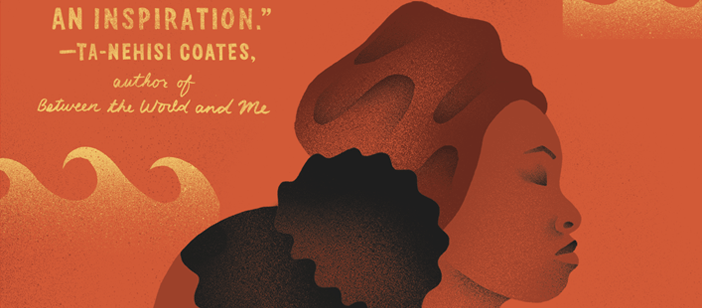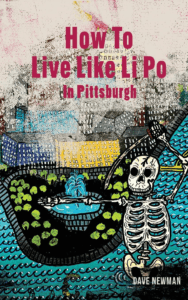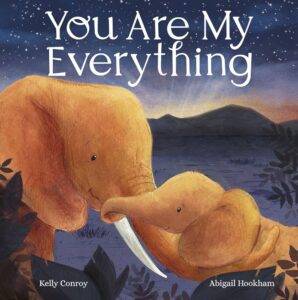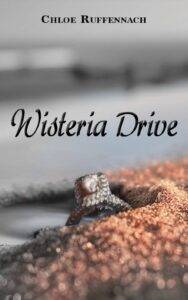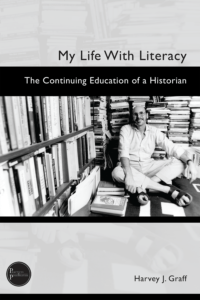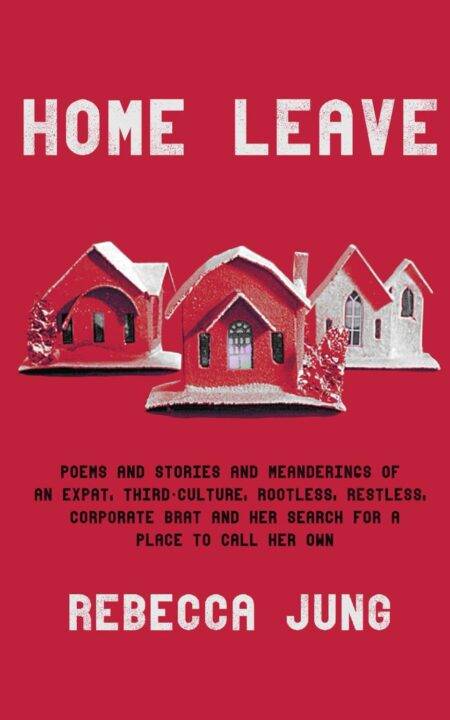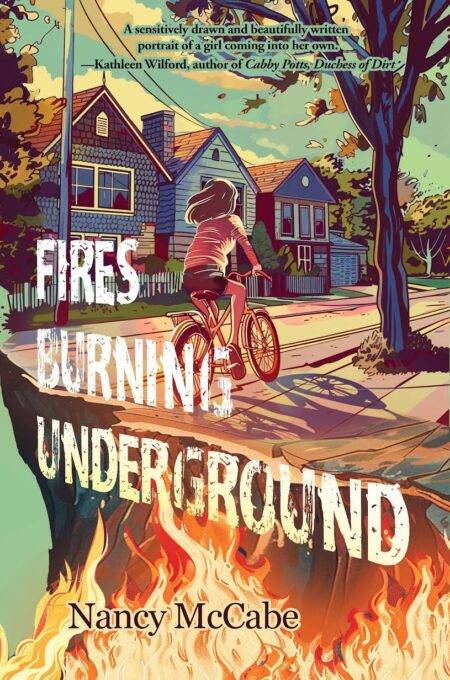Yaa Gyasi is the author of the highly acclaimed debut novel Homegoing and a recipient of the National Book Foundation’s 2016 “5 Under 35” Award. Gyasi was born in Ghana and raised in Huntsville, Alabama. She holds a BA in English from Stanford University and an MFA from the Iowa Writers’ Workshop, where she held a Dean’s Graduate Research Fellowship.
Don’t miss out: The Peters Township Library Foundation will be hosting Gyasi on Thursday, November 9 at 7:00 pm!
The venue for this event is The Bible Chapel’s South Hills Campus at 300 Gallery Drive in McMurray. Doors will open at 6:15 p.m. for General Seating for Adult, Student, and Group Sale ticket holders. Books will be for sale by Penguin Bookshop at the event, and a book signing will follow the program.
From the publisher: “The unforgettable New York Times bestseller Homegoing begins with the story of two half-sisters, separated by forces beyond their control: one sold into slavery, the other married to a British slaver. Written with tremendous sweep and power, Homegoing traces the generations of family who follow, as their destinies lead them through two continents and three hundred years of history, each life indelibly drawn, as the legacy of slavery is fully revealed in light of the present day.”
“Homegoing is an inspiration.”—Ta-Nehisi Coates
“Spectacular.”—Zadie Smith
“I could not put this book down.”—Roxane Gay
Effia
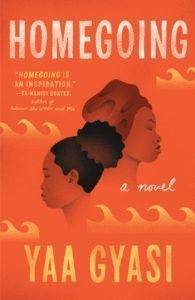 The night Effia Otcher was born into the musky heat of Fanteland, a fire raged through the woods just outside her father’s compound. It moved quickly, tearing a path for days. It lived off the air; it slept in caves and hid in trees; it burned, up and through, unconcerned with what wreckage it left behind, until it reached an Asante village. There, it disappeared, becoming one with the night.
The night Effia Otcher was born into the musky heat of Fanteland, a fire raged through the woods just outside her father’s compound. It moved quickly, tearing a path for days. It lived off the air; it slept in caves and hid in trees; it burned, up and through, unconcerned with what wreckage it left behind, until it reached an Asante village. There, it disappeared, becoming one with the night.
Effia’s father, Cobbe Otcher, left his first wife, Baaba, with the new baby so that he might survey the damage to his yams, that most precious crop known far and wide to sustain families. Cobbe had lost seven yams, and he felt each loss as a blow to his own family. He knew then that the memory of the fire that burned, then fled, would haunt him, his children, and his children’s children for as long as the line continued. When he came back into Baaba’s hut to find Effia, the child of the night’s fire, shrieking into the air, he looked at his wife and said, “We will never again speak of what happened today.”
The villagers began to say that the baby was born of the fire, that this was the reason Baaba had no milk. Effia was nursed by Cobbe’s second wife, who had just given birth to a son three months before. Effia would not latch on, and when she did, her sharp gums would tear at the flesh around the woman’s nipples until she became afraid to feed the baby. Because of this, Effia grew thinner, skin on small birdlike bones, with a large black hole of a mouth that expelled a hungry cry which could be heard throughout the village, even on the days Baaba did her best to smother it, covering the baby’s lips with the rough palm of her left hand.
“Love her,” Cobbe commanded, as though love were as simple an act as lifting food up from an iron plate and past one’s lips. At night, Baaba dreamed of leaving the baby in the dark forest so that the god Nyame could do with her as he pleased.
Effia grew older. The summer after her third birthday, Baaba had her first son. The boy’s name was Fiifi, and he was so fat that sometimes, when Baaba wasn’t looking, Effia would roll him along the ground like a ball. The first day that Baaba let Effia hold him, she accidentally dropped him. The baby bounced on his buttocks, landed on his stomach, and looked up at everyone in the room, confused as to whether or not he should cry. He decided against it, but Baaba, who had been stirring banku, lifted her stirring stick and beat Effia across her bare back. Each time the stick lifted off the girl’s body, it would leave behind hot, sticky pieces of banku that burned into her flesh. By the time Baaba had finished, Effia was covered with sores, screaming and crying. From the floor, rolling this way and that on his belly, Fiifi looked at Effia with his saucer eyes but made no noise.
Cobbe came home to find his other wives attending to Effia’s wounds and understood immediately what had happened. He and Baaba fought well into the night. Effia could hear them through the thin walls of the hut where she lay on the floor, drifting in and out of a feverish sleep. In her dream, Cobbe was a lion and Baaba was a tree. The lion plucked the tree from the ground where it stood and slammed it back down. The tree stretched its branches in protest, and the lion ripped them off, one by one. The tree, horizontal, began to cry red ants that traveled down the thin cracks between its bark. The ants pooled on the soft earth around the top of the tree trunk.
And so the cycle began. Baaba beat Effia. Cobbe beat Baaba. By the time Effia had reached age ten, she could recite a history of the scars on her body. The summer of 1764, when Baaba broke yams across her back. The spring of 1767, when Baaba bashed her left foot with a rock, breaking her big toe so that it now always pointed away from the other toes. For each scar on Effia’s body, there was a companion scar on Baaba’s, but that didn’t stop mother from beating daughter, father from beating mother.
Matters were only made worse by Effia’s blossoming beauty. When she was twelve, her breasts arrived, two lumps that sprung from her chest, as soft as mango flesh. The men of the village knew that first blood would soon follow, and they waited for the chance to ask Baaba and Cobbe for her hand. The gifts started. One man tapped palm wine better than anyone else in the village, but another’s fishing nets were never empty. Cobbe’s family feasted off Effia’s burgeoning womanhood. Their bellies, their hands, were never empty.
In 1775, Adwoa Aidoo became the first girl of the village to be proposed to by one of the British soldiers. She was light-skinned and sharp-tongued. In the mornings, after she had bathed, she rubbed shea butter all over her body, underneath her breasts and between her legs. Effia didn’t know her well, but she had seen her naked one day when Baaba sent her to carry palm oil to the girl’s hut. Her skin was slick and shiny, her hair regal.
The first time the white man came, Adwoa’s mother asked Effia’s parents to show him around the village while Adwoa prepared herself for him.
“Can I come?” Effia asked, running after her parents as they walked. She heard Baaba’s “no” in one ear and Cobbe’s “yes” in the other. Her father’s ear won, and soon Effia was standing before the first white man she had ever seen.
“He is happy to meet you,” the translator said as the white man held his hand out to Effia. She didn’t accept it. Instead, she hid behind her father’s leg and watched him.
He wore a coat that had shiny gold buttons down the middle; it strained against his paunch. His face was red, as though his neck were a stump on fire. He was fat all over and sweating huge droplets from his forehead and above his bare lips. Effia started to think of him as a rain cloud: sallow and wet and shapeless.
“Please, he would like to see the village,” the translator said, and they all began to walk.
They stopped first by Effia’s own compound. “This is where we live,” Effia told the white man, and he smiled at her dumbly, his green eyes hidden in fog.
He didn’t understand. Even after his translator spoke to him, he didn’t understand.
Cobbe held Effia’s hand as he and Baaba led the white man through the compound. “Here, in this village,” Cobbe said, “each wife has her own hut. This is the hut she shares with her children. When it is her husband’s night to be with her, he goes to her in her hut.”
The white man’s eyes grew clearer as the translation was given, and suddenly Effia realized that he was seeing through new eyes. The mud of her hut’s walls, the straw of the roof, he could finally see them.
They continued on through the village, showing the white man the town square, the small fishing boats formed from hollowed-out tree trunks that the men carried with them when they walked the few miles down to the coast. Effia forced herself to see things through new eyes, too. She smelled the sea-salt wind as it touched the hairs in her nose, felt the bark of a palm tree as sharp as a scratch, saw the deep, deep red of the clay that was all around them.
“Baaba,” Effia asked once the men had walked farther ahead of them, “why will Adwoa marry this man?”
“Because her mother says so.”
A few weeks later, the white man came back to pay respects to Adwoa’s mother, and Effia and all of the other villagers gathered around to see what he would offer. There was the bride price of fifteen pounds. There were goods he’d brought with him from the Castle, carried on the backs of Asantes. Cobbe made Effia stand behind him as they watched the servants come in with fabric, millet, gold, and iron.
When they walked back to their compound, Cobbe pulled Effia aside, letting his wives and other children walk in front of them.
“Do you understand what just happened?” he asked her. In the distance, Baaba slipped her hand into Fiifi’s. Effia’s brother had just turned eleven, but he could already climb up the trunk of a palm tree using nothing but his bare hands and feet for support.
“The white man came to take Adwoa away,” Effia said.
Her father nodded. “The white men live in the Cape Coast Castle. There, they trade goods with our people.”
“Like iron and millet?”
Her father put his hand on her shoulder and kissed the top of her forehead, but when he pulled away the look in his eyes was troubled and distant. “Yes, we get iron and millet, but we must give them things in return. That man came from Cape Coast to marry Adwoa, and there will be more like him who will come and take our daughters away. But you, my own, I have bigger plans for you than to live as a white man’s wife. You will marry a man of our village.”
Baaba turned around just then, and Effia caught her eyes. Baaba scowled. Effia looked at her father to see if he had noticed, but Cobbe did not say a word.
Effia knew who her choice for husband would be, and she dearly hoped her parents would choose the same man. Abeeku Badu was next in line to be the village chief. He was tall, with skin like the pit of an avocado and large hands with long, slender fingers that he waved around like lightning bolts every time he spoke. He had visited their compound four times in the last month, and later that week, he and Effia were to share a meal together.
Abeeku brought a goat. His servants carried yams and fish and palm wine. Baaba and the other wives stoked their fires and heated the oil. The air smelled rich.
That morning, Baaba had plaited Effia’s hair. Two long braids on either side of her center part. They made her look like a ram, strong, willful. Effia had oiled her naked body and put gold in her ears. She sat across from Abeeku as they ate, pleased as he stole appreciative glances.
“Were you at Adwoa’s ceremony?” Baaba asked once all of the men had been served and the women finally began to eat.
“Yes, I was there, but only briefly. It is a shame Adwoa will be leaving the village. She would have made a good wife.”
“Will you work for the British when you become chief?” Effia asked. Cobbe and Baaba sent her sharp looks, and she lowered her head, but she lifted it to find Abeeku smiling.
“We work with the British, Effia, not for them. That is the meaning of trade. When I am chief, we will continue as we have, facilitating trade with the Asantes and the British.”
Effia nodded. She wasn’t exactly sure what this meant, but she could tell from her parents’ looks that it was best to keep her mouth shut. Abeeku Badu was the first man they had brought to meet her. Effia wanted desperately for him to want her, but she did not yet know what kind of man he was, what kind of woman he required. In her hut, Effia could ask her father and Fiifi anything she wanted. It was Baaba who practiced silence and preferred the same from Effia, Baaba who had slapped her for asking why she did not take her to be blessed as all the other mothers did for their daughters. It was only when Effia didn’t speak or question, when she made herself small, that she could feel Baaba’s love, or something like it. Maybe this was what Abeeku wanted too.
Abeeku finished eating. He shook hands with everyone in the family, and stopped by Effia’s mother. “You will let me know when she is ready,” he said.
Baaba clutched a hand to her chest and nodded soberly. Cobbe and the other men saw Abeeku off as the rest of the family waved.
That night, Baaba woke Effia up while she was sleeping on the floor of their hut. Effia felt the warmth of her mother’s breath against her ear as she spoke. “When your blood comes, Effia, you must hide it. You must tell me and no one else,” she said. “Do you understand?” She handed Effia palm fronds that she had turned into soft, rolled sheets. “Place these inside of you, and check them every day. When they turn red, you must tell me.”
Effia looked at the palm fronds, held in Baaba’s outstretched hands. She didn’t take them at first, but when she looked up again there was something like desperation in her mother’s eyes. And because the look had softened Baaba’s face somehow, and because Effia also knew desperation, that fruit of longing, she did as she was told. Every day, Effia checked for red, but the palm fronds came out greenish-white as always. In the spring, the chief of the village grew ill, and everyone watched Abeeku carefully to see if he was ready for the task. He married two women in those months, Arekua the Wise, and Millicent, the half-caste daughter of a Fante woman and a British soldier. The soldier had died from fever, leaving his wife and two children much wealth to do with as they pleased. Effia prayed for the day all of the villagers would call her Effia the Beauty, as Abeeku called her on the rare occasions when he was permitted to speak to her.
Millicent’s mother had been given a new name by her white husband. She was a plump, fleshy woman with teeth that twinkled against the dark night of her skin. She had decided to move out of the Castle and into the village once her husband died. Because the white men could not leave money in their wills to their Fante wives and children, they left it to other soldiers and friends, and those friends paid the wives. Millicent’s mother had been given enough money for a new start and a piece of land. She and Millicent would often come visit Effia and Baaba, for, as she said, they would soon be a part of the same family.
Millicent was the lightest-skinned woman Effia had ever seen. Her black hair reached down to the middle of her back and her eyes were tinged with green. She rarely smiled, and she spoke with a husky voice and a strange Fante accent.
“What was it like in the Castle?” Baaba asked Millicent’s mother one day while the four women were sitting to a snack of groundnuts and bananas.
“It was fine, fine. They take care of you, oh, these men! It is like they have never been with a woman before. I don’t know what their British wives were doing. I tell you, my husband looked at me like I was water and he was fire, and every night he had to be put out.”
The women laughed. Millicent slipped Effia a smile, and Effia wanted to ask her what it was like with Abeeku, but she did not dare.
Baaba leaned in close to Millicent’s mother, but still Effia could hear, “And they pay a good bride price, eh?”
“Enh, I tell you, my husband paid my mother ten pounds, and that was fifteen years ago! To be sure, my sister, the money is good, but I for one am glad my daughter has married a Fante. Even if a soldier offered to pay twenty pounds, she would not get to be the wife of a chief. And what’s worse, she would have to live in the Castle, far from me. No, no, it is better to marry a man of the village so that your daughters can stay close to you.”
Baaba nodded and turned toward Effia, who quickly looked away. That night, just two days after her fifteenth birthday, the blood came. It was not the powerful rush of the ocean waves that Effia had expected it to be, but rather a simple trickle, rain dripping, drop by drop, from the same spot of a hut’s roof. She cleaned herself off and waited for her father to leave Baaba so that she could tell her.
“Baaba,” she said, showing her the palm fronds painted red.
“I have gotten my blood.”
Baaba placed a hand over her lips.
“Who else knows?”
“No one,” Effia said.
“You will keep it that way. Do you understand? When anyone asks you if you have become a woman yet, you will answer no.”
Effia nodded. She turned to leave, but a question was burning hot coals in the pit of her stomach.
“Why?” she finally asked.
Baaba reached into Effia’s mouth and pulled out her tongue, pinching the tip with her sharp fingernails.
“Who are you that you think you can question me, enh? If you do not do as I say, I will make sure you never speak again.” She released Effia’s tongue, and for the rest of the night, Effia tasted her own blood.
Excerpted from Homegoing by Yaa Gyasi. Copyright © 2016 by Yaa Gyasi. No part of this excerpt should be reproduced or reprinted without permission.


